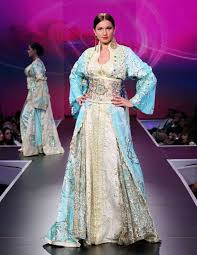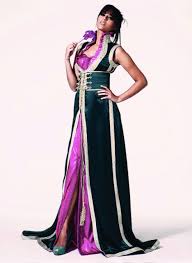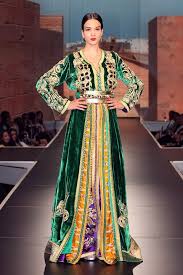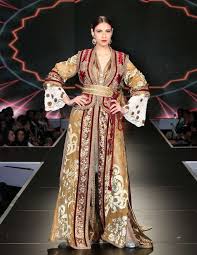caftan 2012-caftan 2013
Thomas Anderson. Wearing a loose, leopard-print caftan, Rudolph spent the evening bonding with her Saturday Night Live pals.






Known for its rich history, Morocco has thrived on reinforcing its own architectural identity, which can be seen in building designs across Fa, Marrakesh, Tanja and many other Moroccan towns and cities. Morocco’s signature art products, which have travelled the world and are considered inseparable from Europe’s renaissance, are on display at its pavilion and range from mosaic and wood carving to Moroccan costumes, Moroccan tea and the world famous Argan oil.
Many visitors are curious to find out the truth behind Argan oil, which many believe gives eternal youth. Historically, Berbers women are said to have used the oil that contains anti-wrinkle properties. Produced from the kernels of the Argan Tree (Argania Spinosa), which grows only in parts of Morocco, its oil is rare and unique to Morocco.
Sold by several vendors at the Moroccan Pavilion, Argan oil has been a favourite cure for hair loss, dandruff and dry skin. It is also used in Moroccan salad.
Moroccan tourist Hafisa Ilyas said that finding Argan oil and Moroccan tea in the Morocco Pavilion has made her very happy. “I use Argan oil a lot for beauty treatments. It makes my skin healthier, younger and softer.” The pavilion also has a host of mosaic and wood carved furniture with Islamic designs, coloured glass lanterns, wall accessories, tables with small leather cushions and vases.
Some hand-carved wood vases with coral, antique silver and calligraphy works measure as high as two metres. On display are the famous Moroccan costumes such as the Gallba and the Caftan that come in various colours and jacquard-like fabric. Cotton thread weaved with silk fashionably compose what is known as the ‘royal costume’ available in women’s cut as well as men’s. The traditional look is incomplete without the comfy, genuine leather hand-made Moroccan poufs. Visitors to the pavilion can also find aker fasi, a red coloured powder referred to colloquially as ‘deer’s blood’. Mixed with vaseline or henna, the powder extract from Moroccan poppy, gives a natural colour and tone to the hair, lips and cheekbones. It is also used in Moroccan baths and spas.


,moroccan food,morocco food,moroccan cuisine,morocco beaches,moroccan meal,beaches in morocco,moroccan culture,hercules cave,hercules cave morocco
Thomas Anderson. Wearing a loose, leopard-print caftan, Rudolph spent the evening bonding with her Saturday Night Live pals.
Known for its rich history, Morocco has thrived on reinforcing its own architectural identity, which can be seen in building designs across Fa, Marrakesh, Tanja and many other Moroccan towns and cities. Morocco’s signature art products, which have travelled the world and are considered inseparable from Europe’s renaissance, are on display at its pavilion and range from mosaic and wood carving to Moroccan costumes, Moroccan tea and the world famous Argan oil.
Many visitors are curious to find out the truth behind Argan oil, which many believe gives eternal youth. Historically, Berbers women are said to have used the oil that contains anti-wrinkle properties. Produced from the kernels of the Argan Tree (Argania Spinosa), which grows only in parts of Morocco, its oil is rare and unique to Morocco.
Sold by several vendors at the Moroccan Pavilion, Argan oil has been a favourite cure for hair loss, dandruff and dry skin. It is also used in Moroccan salad.
Moroccan tourist Hafisa Ilyas said that finding Argan oil and Moroccan tea in the Morocco Pavilion has made her very happy. “I use Argan oil a lot for beauty treatments. It makes my skin healthier, younger and softer.” The pavilion also has a host of mosaic and wood carved furniture with Islamic designs, coloured glass lanterns, wall accessories, tables with small leather cushions and vases.
Some hand-carved wood vases with coral, antique silver and calligraphy works measure as high as two metres. On display are the famous Moroccan costumes such as the Gallba and the Caftan that come in various colours and jacquard-like fabric. Cotton thread weaved with silk fashionably compose what is known as the ‘royal costume’ available in women’s cut as well as men’s. The traditional look is incomplete without the comfy, genuine leather hand-made Moroccan poufs. Visitors to the pavilion can also find aker fasi, a red coloured powder referred to colloquially as ‘deer’s blood’. Mixed with vaseline or henna, the powder extract from Moroccan poppy, gives a natural colour and tone to the hair, lips and cheekbones. It is also used in Moroccan baths and spas.
,moroccan food,morocco food,moroccan cuisine,morocco beaches,moroccan meal,beaches in morocco,moroccan culture,hercules cave,hercules cave morocco